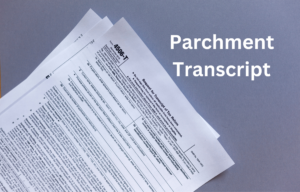Choosing the right real estate agent can make or break your home buying or selling experience. With so many agents available, it can be challenging to determine which one will best meet your needs. A skilled real estate agent not only simplifies the process but also ensures that you get the best possible deal. This guide provides essential tips for selecting a reliable real estate agent who has the experience, market knowledge, and negotiation skills to guide you through your real estate journey.
Whether you’re selling your home or purchasing a new property, understanding how to choose the right real estate agent is crucial. From assessing their local market expertise to reviewing their client testimonials, this guide will walk you through the factors that help you make an informed decision. With these tips, you’ll be able to find an agent who can expertly navigate you through the complexities of the real estate market, ensuring your transaction is smooth and successful.
What are the key factors to consider when choosing a real estate agent?
Choosing the right real estate agent requires evaluating a few key factors that will significantly impact your experience and success in the real estate process. First, the agent’s track record is crucial. Look for agents with proven success in transactions similar to your needs, whether you’re buying or selling a property. Their experience will not only indicate their ability to close deals but also reflect their understanding of the market dynamics. Review how many deals they’ve completed, the types of properties they handle, and their specializations.
Another critical factor is the agent’s local market knowledge. Real estate is highly localized, meaning market conditions can vary significantly from one neighborhood to another. A well-versed agent will understand local pricing trends, buyer or seller behavior, and potential challenges in specific neighborhoods. They can provide insights that help in pricing your home correctly or in making a competitive offer. Lastly, consider their communication style. Clear, regular communication is key to ensuring you stay informed and comfortable throughout the process.

How can you evaluate a real estate agent’s local market knowledge?
Local market knowledge is one of the most important aspects of a real estate agent’s value. A great agent understands the nuances of the neighborhoods they work in and can provide key insights that affect your buying or selling decisions. Start by asking the agent about recent sales in the area. Their ability to discuss properties, price trends, and neighborhood dynamics in detail shows they are active and knowledgeable in the market. You can also check how long properties typically stay on the market in the area and whether the agent’s estimations align with actual data.
Moreover, a good real estate agent will have a deep understanding of factors like school districts, public transport, future developments, and community changes that could affect property values. They should be able to predict which areas are on the rise and which might be overvalued. Evaluating an agent’s understanding of these broader, long-term market trends ensures they can guide you toward a smart investment.
How important is a real estate agent’s experience with your property type?
An agent’s experience with your specific property type can greatly influence the success of your transaction. For instance, selling a luxury home, commercial property, or an investment property involves different strategies than selling a suburban family home. Agents who specialize in a specific property type bring in-depth market knowledge and tailored marketing strategies that are designed to reach the right buyers.
Furthermore, agents with specialized experience often have networks and connections that are specific to that property category. This might include contacts with potential buyers, investors, or developers who are actively looking for that type of property, which can lead to quicker sales and better offers. Agents who have a track record in your property type know the common pitfalls and can navigate them more effectively.
Lastly, their expertise with pricing and negotiation in that specific category can be a major advantage. An agent familiar with your property type will know how to price it competitively and defend that price during negotiations, ensuring you get the best possible deal.
How do you assess a real estate agent’s negotiation skills?
Assessing a real estate agent’s negotiation skills is crucial because a skilled negotiator can help you secure a better deal, whether you’re buying or selling. One of the first indicators of strong negotiation skills is the agent’s ability to build rapport. Skilled agents establish trust by understanding both their clients’ and the opposing party’s motivations, which allows them to find solutions that work for everyone. This win-win approach is a hallmark of successful negotiations, as it avoids adversarial dynamics while still securing favorable outcomes for their client.
Additionally, agents who are active listeners excel in negotiations. Listening closely to the needs and concerns of both parties allows the agent to craft tailored offers that address key priorities without unnecessary concessions. They should be asking probing questions, not just presenting offers. This ensures that the agent understands what the other party truly values, which is essential for creating mutually beneficial deals.
Finally, a strong negotiator will be data-driven. Agents who back up their negotiations with market data and comparisons are often more successful. They should have access to property market statistics and use this data to justify pricing or terms, adding credibility to their arguments.
What questions should you ask a real estate agent before hiring?
When interviewing a potential real estate agent, asking the right questions can help you gauge their expertise, style, and fit for your needs. Start with general questions like, “How long have you been a real estate agent?” or “How many homes have you sold in my area recently?” These questions will give you a sense of their experience and familiarity with the local market, helping you decide if they have the practical know-how you require.
Additionally, ask about their approach to pricing and negotiation. “How do you determine the listing price?” or “What is your negotiation strategy?” are great queries to understand their processes and how they might handle critical moments in the transaction. Finally, ask about their communication style and availability: “How often will we communicate, and what’s the best way to reach you?” Clear communication throughout the process is key, and their answers will help you know if their approach matches your expectations.
What role does communication play in selecting the best real estate agent?
Communication is the backbone of a successful real estate transaction, making it a top priority when selecting an agent. A good real estate agent will be transparent and proactive in their communication. This means providing regular updates, being accessible, and making sure you are informed at every step of the process. Agents who communicate clearly reduce the likelihood of misunderstandings and ensure smoother transactions.
Beyond regular updates, timeliness in communication is critical. Delays in responses can mean lost opportunities in a fast-moving market. A good agent will not only respond promptly to their clients but will also engage efficiently with other agents and parties involved in the deal. This kind of responsiveness helps to build trust and keeps negotiations moving forward.
Lastly, a successful agent should have the ability to adapt their communication style depending on the situation. Whether it’s simplifying complex legal jargon for their clients or negotiating over phone or in person, adaptable communication helps bridge gaps and resolve potential conflicts before they escalate.
What should you expect from a top-performing real estate agent during the selling process?
A top-performing real estate agent should guide you through the selling process with expertise, transparency, and excellent communication. You can expect them to provide a detailed market analysis to determine the optimal price for your property. This includes comparing similar homes in your area and considering current market trends.
In addition to market insights, they should also execute a comprehensive marketing strategy. This includes listing your property across multiple platforms, using high-quality visuals, and promoting it through online and offline channels. Virtual tours, professional photography, and social media campaigns are common tools used by top agents to attract buyers.
Finally, expect frequent updates and negotiations. A top agent will keep you informed throughout the process and negotiate on your behalf to secure the best possible terms, whether that’s the selling price, repair requests, or closing conditions.
What should you look for in a real estate agent’s marketing strategy?
When evaluating a real estate agent’s marketing strategy, it’s essential to look for a plan that effectively uses multiple marketing channels to attract the right buyers. A good agent will utilize digital platforms like social media, SEO, and email marketing, while also embracing traditional methods such as direct mail or local advertising. Key indicators of a well-rounded strategy include the use of professional photography and videos, particularly virtual tours, which have become increasingly important for showcasing properties.
Another crucial element is how the agent leverages targeted advertising. This might include using platforms like Google Ads or Facebook Ads to target specific demographics relevant to the property. Look for an agent who understands how to use data-driven marketing, such as analyzing web traffic, to adjust their campaigns and maximize lead generation. Finally, a solid strategy includes clear branding—look for consistency in messaging across all platforms, which helps build trust with potential buyers.
How do you verify a real estate agent’s credentials and licensing?
Verifying a real estate agent’s credentials is a straightforward process that can help ensure you’re working with a qualified professional. Start by checking your state’s real estate licensing board—most states provide online databases where you can confirm whether an agent holds a valid, active license. This will also show if the agent has faced any disciplinary actions or complaints.
Additionally, you should ask the agent about their professional memberships. Agents who are part of organizations like the National Association of Realtors (NAR) adhere to higher ethical standards and have access to ongoing training. This can be a sign of their commitment to staying current in the industry. Finally, read reviews and testimonials on websites like Zillow, Realtor.com, or even Google Business, which often include client feedback that reflects their real-world experience and professionalism.
How do client reviews and testimonials help in selecting a real estate agent?
Client reviews and testimonials are invaluable tools when selecting a real estate agent because they provide real-world insights into an agent’s performance. Reviews often highlight specific aspects of the agent’s skills, such as their communication style, market knowledge, and ability to negotiate deals. For example, multiple positive reviews indicating an agent’s prompt communication or negotiation skills can give you confidence that they will manage your transaction efficiently.
Additionally, testimonials allow you to gauge an agent’s consistency. When several reviews mention the same positive traits—such as responsiveness or professionalism—it’s likely that the agent consistently delivers high-quality service. You can also filter out biased or outlier reviews by focusing on detailed and balanced testimonials.
How can you determine if a real estate agent is a good fit for your personal needs?
Determining if a real estate agent is a good fit begins with assessing their experience with your property type and communication style. Agents who specialize in the type of property you’re selling or buying (e.g., residential homes, commercial properties, luxury estates) are more likely to have the specific knowledge needed to get the best deal.
Additionally, consider their availability and responsiveness. If you prefer frequent updates, find an agent who is responsive and communicates regularly. During the initial meeting, gauge how well the agent listens to your needs and whether they offer tailored advice. Their ability to adjust to your preferred communication style—whether through phone calls, emails, or in-person meetings—can also indicate a good fit.
What questions should you ask to determine a real estate agent’s availability?
To assess a real estate agent’s availability, start by asking, “How many clients are you currently working with?” This will give you an idea of how much attention they can devote to your transaction. Next, ask, “What is your preferred method of communication, and how quickly do you typically respond?” This helps ensure their responsiveness aligns with your expectations.
Additionally, inquire, “Will I be working directly with you, or will a team handle parts of the process?” Agents who work in teams may delegate tasks, so it’s important to understand who your main point of contact will be and how hands-on the agent will be throughout the process.
How do real estate agents handle multiple clients at once?
Real estate agents manage multiple clients through a combination of prioritization, communication, and delegation. Top agents often use digital tools and systems, such as customer relationship management (CRM) software, to keep track of all their active listings, client communications, and important deadlines. This allows them to manage multiple transactions efficiently while ensuring each client receives the attention they need. By staying organized, agents can effectively juggle competing demands and ensure no important details slip through the cracks.
Additionally, successful agents maintain clear and consistent communication with each client. Setting expectations upfront and providing regular updates allows them to manage client relationships even during high-demand periods. Many agents also delegate tasks to team members, such as administrative work, which helps free up their time to focus on high-level negotiations and client interactions.
What are the red flags to avoid when choosing a real estate agent?
There are several red flags to watch for when selecting a real estate agent. One significant warning sign is poor communication. If an agent takes too long to respond to your inquiries or fails to provide clear answers, it could signal deeper issues with their attentiveness or organization. Good agents keep you informed at every stage of the process.
Another red flag is an agent who overpromises on what they can deliver—whether it’s an unrealistic listing price or an overly optimistic timeline for a sale. Skilled agents base their assessments on data, not on what they think you want to hear. Be wary of agents who lack local market knowledge or can’t provide data-backed insights into the property market.
Lastly, if an agent lacks a clear marketing strategy or refuses to discuss how they plan to promote your property, it may indicate they aren’t prepared to invest the necessary effort to get the best results for you.

How can technology improve your experience with a real estate agent?
Technology has transformed the way real estate agents operate, making transactions more seamless and transparent. One significant benefit is the use of virtual tours and 3D property walkthroughs, which allow buyers to explore homes without needing to visit in person. This not only saves time but also broadens the reach for sellers by attracting out-of-town or international buyers.
Agents also use automated tools for scheduling, client updates, and managing paperwork, reducing delays and improving efficiency. For example, electronic signatures on contracts speed up the closing process, while real-time communication platforms like WhatsApp or Slack allow for faster interactions between agents, buyers, and sellers. Technology like this ensures smoother transactions, making it easier for clients to stay informed and engaged throughout the process.
What tools and platforms do top real estate agents use to manage their listings?
Top real estate agents use a variety of tools to manage their listings effectively. Customer Relationship Management (CRM) systems are crucial, helping agents track client interactions, follow up on leads, and keep all communication organized. Popular platforms like Top Producer or BoomTown streamline client management and automate many routine tasks.
For listing visibility, agents often turn to platforms like Zillow, Realtor.com, and MLS (Multiple Listing Service) to ensure their properties are seen by a wide audience. Additionally, social media marketing tools like Instagram, Facebook, and LinkedIn allow agents to promote properties using photos, videos, and even live tours. These platforms help agents reach targeted audiences and increase their listings’ exposure.
Choosing the best real estate agent is a critical decision that can significantly impact your property transaction experience. From understanding the local market to utilizing advanced technology and managing multiple clients, a top-performing agent brings a wealth of knowledge and tools to the table. It’s essential to assess their marketing strategies, client reviews, and communication style to ensure they align with your personal needs.
Moreover, ensuring the agent is well-versed in your specific property type and handles their workload efficiently can further smoothen the process. In a competitive market, leveraging their negotiation skills, local expertise, and familiarity with the home loan process will give you a significant advantage. By applying these tips for choosing the best real estate agent, you can confidently navigate the real estate market and achieve successful results.












